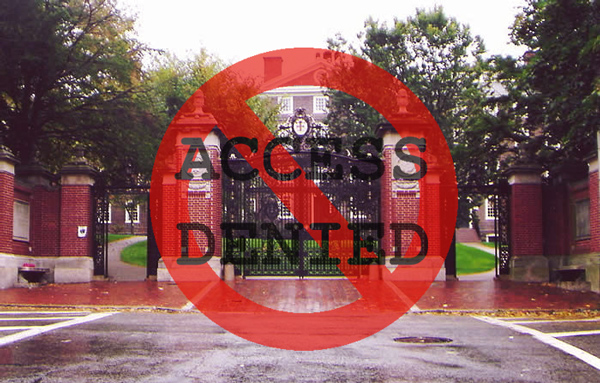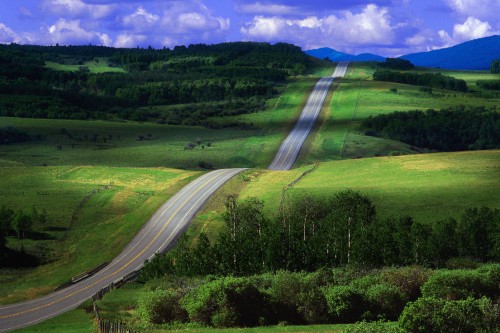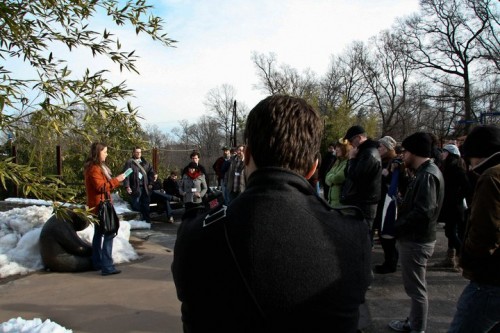THIS IS WHAT REJECTION LOOKS LIKE

I just logged into the Brown application website to try to view my MFA rejection letter. It’s no longer there. I am wondering where it went. My status is simply “submitted” and no longer rejected. Could my rejection have been revoked? No, probably not. There is probably a demon in their system affording me this glimmer of false hope—like dreaming of your crush putting the moves on you. The first thing I actually thought was, “What am I going to tell my parents?” They are used to me always being “the best” and are far more invested in my success than I am. I told them not to get their hopes up. I put together a typo-filled portfolio the night before it was due because I was visiting my mom who was in the hospital from a suicide attempt and applying to grad school was the last thing on my mind. But I had an application waiver, so I sent it off with a statement that basically said, “I’m sorry this is bad. My life is a wreck right now.”
Luckily, I copy and pasted the rejection letter into my long poem before it disappeared:
READ MORE >
Two Deadlines Loom

The &Now Festival is a biennial festival, celebration, and conference that explores intersections between creative and critical praxis, examines innovative and experimental acts of writing, and advances a serious inquiry into theories of language and consciousness. The 2011 &Now Festival of New Writing: Tomorrowland Forever! will be held October 13-15, 2011 at University of California, San Diego, a research institution internationally renowned for imaginative experimentation in the arts, humanities, and sciences.
ALSO
Madeleine P. Plonsker Emerging Writer’s Residency Prize
Each spring, Lake Forest College, in conjunction with the &NOW Festival, sponsors emerging writers under forty years old—with no major book publication—to spend two months in residence at our campus in Chicago’s northern suburbs on the shore of Lake Michigan.
SMILES YOU CAN’T STOP: Winners
 Pumpkins have long since rotted, and Massachusetts is trying to convince us that thirty-degree sunlight passes for bloomage. Which must mean the winners of the unstoppable smiles pumpkin caption contest are: Jeremy Bauer, Ted Powers, and Noah Falck. I know I said I’d only pick two, but I liked all three of their captions. Thanks to Ken Baumann for sponsoring the contest by accidentally buying two copies of Jason Bredle’s Smiles of the Unstoppable. Winners, email me at mikeayoung AT gmail DOT com with your mailing addresses to get your free books. Everybody else: the kid is bobbing for apples, not puking, but you shouldn’t let that stop you.
Pumpkins have long since rotted, and Massachusetts is trying to convince us that thirty-degree sunlight passes for bloomage. Which must mean the winners of the unstoppable smiles pumpkin caption contest are: Jeremy Bauer, Ted Powers, and Noah Falck. I know I said I’d only pick two, but I liked all three of their captions. Thanks to Ken Baumann for sponsoring the contest by accidentally buying two copies of Jason Bredle’s Smiles of the Unstoppable. Winners, email me at mikeayoung AT gmail DOT com with your mailing addresses to get your free books. Everybody else: the kid is bobbing for apples, not puking, but you shouldn’t let that stop you.
Pleasing the Spiders OR Google: Oprah+[current event], Facebook
<head>
<meta name=”keywords” content=”search engines, better than people, angry writer, depression”>
<meta name=”description” content=”Who needs fans when you have Google?”>
</head>
<div id=”post”>
<h2>Pleasing the Spiders OR Google: Oprah + [current event], Facebook</h2>
<div id=”context”>
<p>Google’s index is made up of billions of web pages, making it the largest web page database, and possibly the largest knowledge repository, in the world. Google currently handles 70% of all search engine queries. As of October 2010 Google has scanned over 15 million books. The term “what to read” is searched 60,500 times monthly. What happens when humans are no longer necessary tastemakers? Being a hipster will no longer mean having access to early Domino and the Cheese Willys tracks. Being a hipster will mean having access to something–anything–not catalogued by Google. (Don’t panic, hipsters; I made up Domino and the Cheese Willys)</p>
<p>Search engines utilize top-secret algorithms to provide users with relevant information based on search terms. Anything online is susceptible to Google’s search spiders, which includes every story, every poem, every essay ever posted online. Is the next step in creative writing then to produce content with the search engine in mind? Will meta-data be its own keyword rich bank to be used as bait for inbound links? Will every other word be hyperlinked in hopes of attracting returning links? What will this do to our already dwindling attention span? Or, more optimistically, have our attention spans evolved to properly accept so much stimuli?</p>
<p>But despite the obvious cringe factor (ads in eBooks frightens me), I am less pessimistic about what will come from the first author to truly tap into the growing eBook medium. Think what Mark Z. Danielwski would have done with House of Leaves if the eBook platform was viably open for development. Until something big happens, though, I fear we will have to endure a lot of failed attempts (no hyperlink necessary; use your imagination).</p>
</div>
</div>
<div id=”footer”>
<p>This is a gust post by Caleb J Ross as part of his Stranger Will Tour for Strange blog tour. His goal is to post at a different blog every few days beginning with the release of his novel Stranger Will in March 2011 to the release of his second novel, I Didn’t Mean to Be Kevin in November 2011. If you have connections to a lit blog of any type, professional journal or personal site, please contact him. He would love to compromise your integrity for a day. To be a groupie and follow this tour, subscribe to the Caleb J Ross blog RSS feed. Follow him on Twitter: @calebjross. Friend him on Facebook: Facebook.com/rosscaleb.</p>
</div>
Michael Hemmingson’s Lish Project

Gordon Lish Edited This
Self-Publishing Isn’t My Worst Mistake

(Ed. note: I received a lot of responses about my post about self-publishing via e-mail, on other blogs, here at HTMLGIANT. A. Lot. It has been a really interesting discussion and one that will continue. One writer, Mary Maddox, wanted to share her own story of trying to break into mainstream publishing and eventually choosing to self-publish her novel.)
Roxane’s piece on the value of self-publishing upset me. Last year I started Cantraipt Press and published my novel Talion, so I took some of her comments very personally. Yet she doesn’t denounce writers who self-publish. Her tone is thoughtful, and she understands why self-publication might be the right decision for some. Now that I’ve calmed down, I understand what happened. I read her piece entirely in the context of my own experience.
While I was at the University of Iowa Writers’ Workshop in the 1970’s, a visiting writer came every year to read and conduct a guest workshop. Each faculty member chose two stories by students for this event. My first year John Hawkes came. Hawkes wrote several critically acclaimed books, but he doesn’t seem to be talked about much today. The second year it was Thomas Berger, famous for Little Big Man, a best-seller now gathering dust. Both years, one of my stories was chosen for the guest workshop. My teachers considered me to be a young writer of some promise, and I desperately wanted my fiction to be published.
An introduction from Mary Lee Settle got my first novel read by an editor at Random House, who referred me to a well-known agent with an office in Greenwich Village. I was in my twenties. Imagine my excitement. But the editor had come to Random House recently from another publisher, and he lacked the support to get my novel accepted, even after I’d rewritten it to address the concerns of his colleagues. The Greenwich Village agent represented me for a few years, but she’d taken me on thinking my novel would be accepted at once and her job would be to negotiate a contract. Suddenly it became something else she had to hustle to sell. I don’t think she tried all that hard, especially after a few rejections.
What is Experimental Literature? {Five Questions: Amelia Gray}

Amelia Gray is the author of AM/PM (Featherproof Books) and Museum of the Weird (FC2). Her first novel, THREATS, is due Winter 2012 from Farrar, Straus and Giroux.
On Aging and Anxiety
Today is the very last day of my 20s. I feel like a hot wreck. Whereas I know that age doesn’t really mean anything and we age every single fucking day, it seems monumental.
I remember one of the first conversations I had with Joyelle McSweeney. I was 25. I had just graduated with my MFA. I hadn’t even submitted my first book manuscript for publication (though I was getting ready to), and she said something like: “Oh, I’m so old in comparison, it’s ghastly: I’m thirty!” In my head, I thought to myself: “Fuck, if I do even half of what Joyelle has done by the time I’m thirty, I would be grateful!”
Well, boys and girls, here it is: thirty.

